Meet the Associates!
 Alice Abraham, MD
Alice Abraham, MDEndocrinology Fellow
Columbia Presbyterian Medical Center
New York, NY
I am a second year fellow in endocrinology at Columbia Presbyterian Medical Center. As part of my training, I see patients in our dedicated thyroid clinic as well as patients in our thyroid biopsy clinic. Many of my most interesting cases have been thyroid cancer or hyperthyroidism related.
I would like to cultivate my interest in thyroid disease, and I believe joining ATA will be a great resource for my training. I have submitted an abstract for consideration at the upcoming ATA meeting. I have also presented at our New York Thyroid Meeting. I hope being an ATA member will allow me to continue to enhance my professional development.
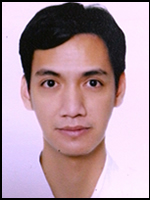 Anthony Harvey Isabelo Aguilar, MD
Anthony Harvey Isabelo Aguilar, MD
Endocrinologist
University of the Philippines - Philippine General Hospital
Manila, Philippines
I am currently an endocrinology fellow-in-training and I see a lot of patients with thyroid disorders here in my country. What interests me about the thyroid is the fact that there are still many unanswered questions about its physiology and management.
The ATA will be a good venue, especially for fellows-in-training, to exchange knowledge and ideas related to thyroid physiology, diagnostics, and therapeutics. It's also a good opportunity to share clinical dilemmas and experiences as well.
 Hafiz Muhammad Ali, PhD
Hafiz Muhammad Ali, PhD
PhD Scholar Institut Gustave-Roussy
France
I am a PhD student at Institut Gustave Roussy, Villejuif (France) and working on anti-neoplastic activity of siRNA RET/PTC1 and RET/PTC3 combined with squalene as nanoparticles in papillary thyroid carcinoma. One of my papers has recently been accepted to "Thyroid" which deals with the activity of siRNA RET/PTC1-SQ nanoparticles combined with fusogenic peptide GALA.
I am ambitious to acquire advanced knowledge about research and recent technologies in thyroid cancer and I want to collaborate with other fellows who study thyroid diseases, to further improve my ideas in the field of thyroid research. Currently I am working on efficiency of siRNA RET/PTC3-SQ NPs, as a second part of my PhD research. Since I observed interesting results in my in vitro and in vivo experiments, I want to present my current data in ATA conference 2013. This will be my first time joining this great event and eagerly looking forward to October.
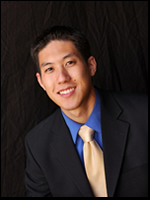 Tim Arakawa, MD, PhD
Tim Arakawa, MD, PhD
Endocrinology Fellow
University of Texas Health Science Center at San Antonio
San Antonio, TX
As an endocrinologist fellow, I would like to learn and grow in my knowledge of thyroid disease through interaction with colleagues at the national and international level.
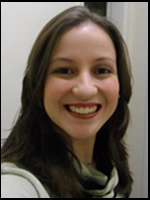 Paula Bargi-Souza, MS
Paula Bargi-Souza, MS
PhD
Student
Sao Paulo University
Sao Paulo, Brazil
After completing my Master Degree I began working with non genomic actions of thyroid hormone in pituitary gland, especially in thyrotrophs, in which I am trying to identify rapid effects of triiodothyronine (T3) on TSH synthesis and secretion.
My interest in the ATA is basically related to the conferences and journals.
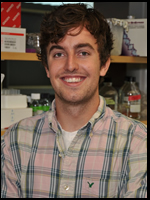 Thomas Clinton Beadnell, Jr.
Thomas Clinton Beadnell, Jr.
Graduate Student
University of Colorado
Aurora, CO
I am a Cancer Biology graduate student at the University of Colorado, and I have recently joined the laboratory of Dr. Rebecca Schweppe. We hope to uncover novel therapeutic strategies for the treatment of advanced Thyroid Cancer, through a better understanding of the resistance mechanisms that arise from the use of targeted therapies.
As a new member of a Thyroid Cancer lab it is important for me to gain connections and set up collaborations, and I believe that joining the ATA will be a great way for me to accomplish these goals. Also through an improved knowledge of Thyroid biology and close collaborations I hope to better advance therapies for Thyroid Cancer.
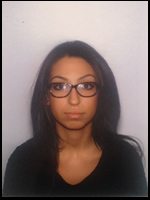 Lina Zahra Benamira, MS
Lina Zahra Benamira, MS
Medical Student University of Montreal
Montreal, Quebec City, Canada
I have always considered research in thyroid disease to be of utmost importance. Despite my young age, I have been involved in thyroid research projects primarily aimed at improving the prediction of locoregional disease in thyroid cancer and quality of life assessment in these patients.
I think all the values promoted by the ATA are of fundamental importance in the advancement of research, education and services for patients suffering from thyroid disease. It would be an honor to be part of this association to expand my areas of expertise and be able to give back.
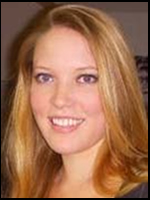 Brittelle E. Bowers, PhD
Brittelle E. Bowers, PhD
Graduate Student
University of Colorado
Aurora, CO
The Schweppe lab has shown FAK overexpression and activation in thyroid tumors. How FAK, a signaling kinase and molecular scaffold, contributes to tumorigenic processes is not clear. My graduate study focuses on dissecting the roles of FAK kinase activity and FAK scaffolding to more effectively target FAK in the clinic.
The ATA provides many opportunities to discuss leading advances in thyroid cancer research with prestigious scientists and clinicians. I hope to add to the advancement of this field through my graduate research and membership with the ATA.
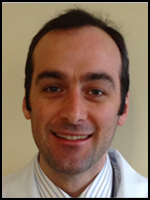 Daniel Brickman, MD
Daniel Brickman, MD
Fellow Oregon Health and Science University
Portland, OR
I am currently a head and neck surgery fellow at Oregon Health and Science University. I am currently enrolling patient in a prospective study to look at Cowden Syndrome and its relationship to thyroid disease.
I am motivated to join the ATA as an outlet for thyroid related scientific presentations and as an avenue for multidisciplinary learning and collaboration.
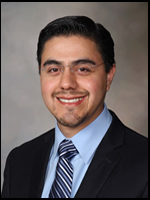 Juan P. Brito, MD
Juan P. Brito, MD
Endocrinology Fellow
Mayo Clinic
Rochester, MN
Currently, I am second-year endocrine fellow, health care delivery research scholar, and research fellow in the Knowledge and Evaluation Research (KER) unit at Mayo Clinic, Rochester. I am interested in how knowledge is produced, processed and transmitted. My goals are to promote evidence based endocrinology; and particularly, in the field of thyroid diseases.
The American Thyroid Association offers me the opportunity to meet and work with world renowned clinicians and scientists. ATA is a network that will help in my research and personal goals.
 Alan Chang, MD
Alan Chang, MD
Fellow Hahnemann University Hospital / Drexel University
Philadelphia, PA
As an endocrinology fellow, it is essential to be up to date with the latest developments in the field. The Thyroid journal has a good balance of both basic and clinical research; I have used it multiple times as a reference tool. As a fellow, it is good practice to keep up with the literature and Thyroid is a journal which I would want to continue to subscribe to after fellowship.
The ATA is an organization which has proved invaluable to me during my first year of fellowship. Currently, and while a first year fellow, it was difficult to find direct answers to questions which arose during clinic or inpatient consultations as multiple papers may be conflicting. The ATA organization provided the answers via guidelines and I have referenced it multiple times for difficult cases. Being a part of the organization is beneficial in terms of knowledge. I also benefit from knowing I am part of an organization which is helping my fellow colleagues.
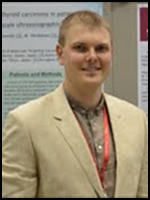 Andrii Dinets, MD PhD
Andrii Dinets, MD PhD
Student
Karolinska Institutet
Sweden
I have an interest in basic and clinical research of thyroid neoplasms, mainly in thyroid cancer. Currently, I am focused at the investigation of prognostic and diagnostic markers for papillary thyroid carcinoma; there are also some ongoing studies for medullary thyroid cancer.
Membership in ATA provides a great opportunity to get the updates in the various aspects of thyroid research and clinical practice. Moreover, ATA meetings provide an outstanding scientific environment and opportunity to meet experts in the field.
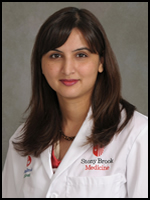 Sehar Ejaz, MD
Sehar Ejaz, MD
Fellow Stony Brook Children`s Hospital
Stony Brook, NY
As a Pediatric Endocrine fellow, I follow a variety of patients with thyroid disorders. Many of my patients with congenital hypothyroidism were diagnosed at an early age through newborn screening, but some still present at an older age with consequences of undiagnosed congenital hypothyroidism, due to unavailability of newborn screening in their native countries. One of the many benefits of being an ATA member is that I can provide up-to-date educational and treatment resources to my patients and their families. Additionally, seminars and ultrasound workshops offered by the ATA, provide training in areas less commonly experienced by pediatric endocrine fellows.
 Marisa Lynn Cruz, MD
Marisa Lynn Cruz, MD
Fellow
University of California San Francisco
San Francisco, CA
I plan to pursue a career in clinical and academic endocrinology, including diagnosis and treatment of thyroid disorders. I am also interested in public health and community-based prevention and screening programs.
I believe that professional organizations are integral to advancing patient advocacy efforts, improving patient outcomes, and ensuring adequate funding for academic research.
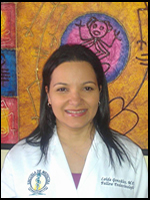 Loida A. Gonzalez-Rodriguez, MD
Loida A. Gonzalez-Rodriguez, MD
Endocrinology Fellow
University of Puerto Rico School of Medicine
San Juan, Puerto Rico
In Puerto Rico there is an increasing trend in thyroid dysfunction. Dysfunction of the thyroid gland affects the quality of life of our patients and it is important to understand the pathophysiology of these disorders in order to provide better care to our patients.
ATA provides the information necessary to understand thyroid disorders that is accessible to clinicians.
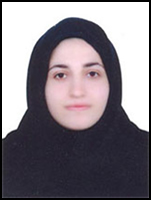 Zeinab Hallajian, PhD
Zeinab Hallajian, PhD
PhD Student
Molecular Geneticist National Institute for Genetic Engineering and Biotechnology Institute
Tehran, Iran
I am a PhD student in molecular genetics and am interested in discovering genesthat cause to hypothyroidism. My PhD thesis in this area looks to find new candidate genes.
I became a member of the ATA to know learn the latest about thyroid and hypothyroidism, especially in the molecular and genetic research field. I also would really like to meet other specialists that do research in this field from around the world. In addition I would like to share my results to other specialists at this upcoming international congress.
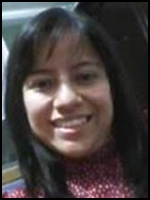
Student Universidad Nacional Autónoma De México Qu eretaro
Mexico
I consider the Thyroid to be a renowned scientific journal,that publishes cutting edge science and quality research. It is the journal of reference for scientists interested in the study of thyroid biology.
I´m interested in the basic mechanism that mediates thyroid hormone biological effects. I know the ATA gathers basic and clinical research experts in thyroid biology, and I would like to be a part of this organization and get to know and collaborate with my colleagues in the basic research field.
 Allen S. Ho, MD
Allen S. Ho, MD
Head and Neck Surgery Fellow Memorial Sloan-Kettering Cancer Center
New York, NY
As part of my head and neck surgery fellowship, we do substantial thyroid surgeries and frequently work up thyroid nodules for management. I feel the multidisciplinary involvement of endocrinology, radiology, nuclear medicine, and surgery are critical to best serve the growing needs of patients with thyroid cancer.
I believe the ATA is vital to standardizing care and deciphering the complex clinical decision-making necessary in the management of thyroid patients. For instance, the ATA has issued widely accepted guidelines for papillary, medullary, and anaplastic thyroid cancers, and I would enjoy the opportunity to contribute to an international voice underpinning thyroid care.
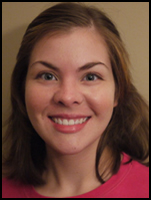 Laura Mesa LaBoone, MD
Laura Mesa LaBoone, MD
Fellow
University of Kentucky
Lexington, KY
I was born in Venezuela and moved to the United States at the age of three with my parents, as my father was accepted to the graduate school at the University of South Carolina. I finished college there as well, then graduated from the Medical University of South Carolina, before completing an Internal Medicine residency at Wake Forest Baptist Health. I stayed for a chief year as well. I am starting my second year of Endocrinology fellowship at the University of Kentucky, and hope to work in an academic setting with a teaching component. I particularly enjoy thyroid ultrasound and am hoping to learn more about techniques of thyroid US/FNA.
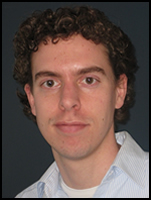 Marco Medici, MD, MSc
Marco Medici, MD, MSc
Erasmus Medical Center
Rotterdam, Netherlands
My research focuses on the effects of (common) genetic variation on thyroid (dys)function and autoimmunity. Parts of these studies have been submitted as an abstract for the upcoming 2013 ATA meeting. Furthermore we study the effects of variation in thyroid parameters during pregnancy on both the mother and child.
I joined the ATA as I regard this to be a unique environment to share the results of our studies, as well as potential ideas for future research.
 Thomas C. Miller, PhD
Thomas C. Miller, PhD
Postdoctoral Fellow
NICHD/NIH
Bethesda, MD
I received my PhD examining TSH/TSH receptor structure/function relationships and have been working for two years in the laboratory of Dr. Yun-Bo Shi (NICHD/NIH) examining the molecular mechanisms governing TH action. In particular I have examined the role of a few TH regulated oncogenes associated with intestinal stem cell development.
I would like to join the ATA to keep apprised of advances in clinical thyroid research and network with fellow thyroid researchers thereby ensuring my future lines of research will have practical applications and strong collaborations.
 Aparna Lakshmanan, B.Tech
Aparna Lakshmanan, B.Tech
Graduate Research Associate
The Ohio State University
Columbus, OH
My dissertation research is to devise strategies to selectively upregulate sodium iodide symporter-mediated radioactive iodide uptake in patients with advanced thyroid cancer so they can benefit from radioiodide therapy for ablation of post-surgical remnants.
Being part of ATA would give me a wider perspective of thyroid-related research going on world-wide. It would expose me to the larger network of scientists and clinicians, which will ultimately help me in doing more effective and meaningful research making a difference in people's lives.
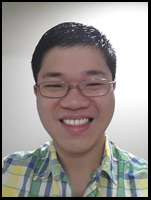 Tom Edward Ngo Lo, MD
Tom Edward Ngo Lo, MD
Fellow in Training University of the Philippines - Philippine General Hospital Philippines
As a fellow in training, I'm interested in research pertaining to the thyroid gland and its associated disorders. My fields on interest are anaplastic thyroid cancer, medullary thyroid cancer, chemotherapy in thyroid malignancies and approach to thyroid nodules. I am also interested with current updates on the genetic studies for thyroid malignancies like BRAF mutations.
I would like to stay updates and become familiar with the current ATA guidelines for thyroid cancer, nodules and physiology. I would also love to learn more about thyroid imaging technologies and antibody tests available that can be of use at our institution. I have dreamed that someday I would be able to participate at the annual meeting of the association that has continuously inspired me in my practice..
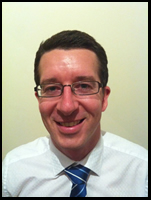 David Andrew Pattison, MD
David Andrew Pattison, MD
Nuclear Medicine Registrar
Peter MacCallum Cancer Centre
Australia
I am a fellow currently completing postgraduate dual specialty training in both Endocrinology and Nuclear Medicine. I am currently conducting research into the utility of sestamibi thyroid scintigraphy, have published and presented original thyroid research, and thyroid disease (including cancer) is my primary area of sub-specialisation.
I wish to join ATA because the principles of the ATA, as the peak body for improving the prevention and management of thyroid diseases, aligns closely with my own professional aspirations. I also plan to attend the ATA scientific meeting in the future.
 Matthew T. Olson, MD
Matthew T. Olson, MD
Fellow
The Johns Hopkins Hospital
Baltimore, MD
My clinical practice and research career both involve thyroid fine needle aspiration and ancillary testing for the diagnostic workup of thyroid nodules.
I want to join the ATA because I am serious about thyroid disease, and the ATA is the premier thyroid society.
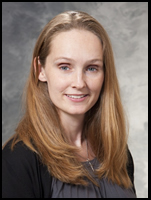 Sarah C. Oltmann, MD
Sarah C. Oltmann, MD
Endocrine Surgery Fellow, Clinical Instructor
University of Wisconsin
Madison, WI
As a current Endocrine Surgery Fellow, I foresee a majority of my future practice consisting of thyroid pathology. As a thyroid patient myself, I am even more motivated to see the diagnosis and management of thyroid disease continue to advance.
I am interested in building multi-disciplinary collaborations. The ATA brings all the various specialties that treat thyroid disease, as well as the patients together to discuss the current issues and topics in the field. I feel I can both learn from and contribute to the discussions.
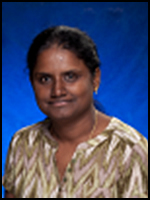 Deepa Ponnusamy, MD
Deepa Ponnusamy, MD
Scott & White
Temple, TX
Thyroid disorders constitute the major bulk of patients that we see in our practice. Clinical presentations are varied and each scenario can be challenging though on the surface they appear very simple. Thyroid cancer is booming now and can be 100 % curative if diagnosed early. This urges us doctors to constantly look out for our patients.
Being an Endocrine fellow, the ATA provides an opportunity for us to learn a lot and interact with other endocrinologists from all parts of the world.
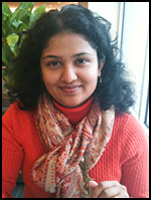 Rajasree Pai Ramachandra Pai, MD
Rajasree Pai Ramachandra Pai, MD
Endocrinology Fellow
Texas A&M
Temple, TX
I am currently a second year endocrinology fellow at Texas A &M. I come across patients with multiple thyroid disorders and perform ultrasound guided fine needle aspiration under supervision. I am planning to apply for ECNU certification next year (Endocrine Certification for Neck Ultrasound). I also have an abstract to present at the 2013 American Thyroid Association meeting in October regarding parathyroid cyst.
Being a member of the ATA will help keep me updated with current research and guidelines in thyroid disorders and encourage my attendance and presentations at ATA meetings.
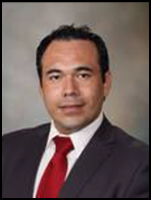 Raul Ruiz Esponda, MD
Raul Ruiz Esponda, MD
Fellow
Mayo Clinic
Rochester, MN
The evaluation and management of thyroid disorders is part of my daily clinical practice as well as one of my main interests within Endocrinology. On the research side, my interest is in the clinical significance of incidental thyroid nodules detected on PET CT. Thyroid diseases represent a large, fundamental part of Endocrinology; therefore, it is of absolute importance to stay current on the most recent research and
As I work with some of the leaders of the thyroid disease field, I have found that the ATA provides a great platform to interact with clinicians and researchers who share the same interests for thyroid diseases. It helps me to keep up to date in the different clinical and research aspects of thyroid pathology.
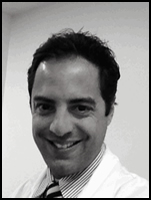 Panagiotis A. Sideras, MD, PhD
Panagiotis A. Sideras, MD, PhD
Resident Mount Sinai School of Medicine
New York, NY
Being diagnosed with cancer is completely life changing and thyroid cancer is no exception. It is a total misleading concept to perceive thyroid cancer as one of the most benign form of malignancies. Thyroid cancer is one of the fastest growing tumors with estimates around 60000 people affected annually in the U.S of which 1850 people will eventually lose the battle. One of the most recent updated breaking-through methods that help certain types of dedifferentiated cancer to redifferentiate has drawn my attention; a very promising aspect of molecular imaging and treatment.
I strongly believe that by joining the ATA will provide me with the most up-to date guidelines in treating thyroid cancer and enhance my knowledge in the filed thus enable me to provide excellent patient care in the very busy institution I work.
 Johnson Thomas, MD
Johnson Thomas, MD
Fellow
Nassau University Medical Center
East Meadow, NY
I am currently doing my Endocrinology Diabetes & Metabolism fellowship at Nassau university medical center, NY. In our fellowship we get to see a variety of thyroid pathology and we have an active FNA clinic. Fellows in our program do at least 150 thyroid FNAs before they finish the program. My abstracts related to thyroid have been accepted in national conferences.
My previous fellows highly recommended joining the ATA. I personally use the ATA guidelines for managing patients and encourage my patients to use the ATA website. I believe by joining the ATA I will be able to get up-to-date information about thyroid disease management. Since I am interested in thyroid, I would like to support the ATA by joining the association.
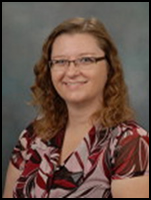 Melanie Marie Thomas, MD
Melanie Marie Thomas, MD
Fellow
University of Florida – College of Medicine
Jacksonville, FL
I am interested in the thyroid because I was diagnosed with thyroid cancer in my early twenties. At the time, I did not have much information in regards to this and was not given allot of information by my doctors. My goal with each patient is always to discuss their treatment, prognosis and to educate them as much as possible.
I want to provide the best care for my patients and become knowledgeable on the most up to date information available. I would also love to become a member in order to develop contacts and I am interested in the collaboration of information to better patient care and education of physicians that ATA nurtures.
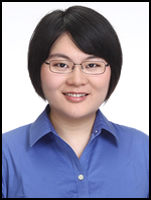
Graduate Student
Ruijin Hospital, Shanghai -Jiaotong University School of Medicine
Shanghai, China
I devoted my research attention to thyroid cancer in my graduate study focused on microenvironment of thyroid cancer, namely fibroblast. I helped conduct a survey of 20 hospitals in Shanghai to investigate the trends of thyroid diseases and participated in writing the first Shanghai report of thyroid diseases.
ATA is a well-recognized world leading organization of both clinical and basic thyroid research. It supports young investigators and provides great opportunities to share with and learn from professionals. Joining the ATA would certainly help me in my professional career.
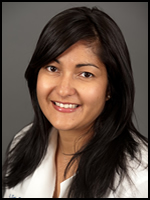 Carmen Laura Soto, MD
Carmen Laura Soto, MD
Fellow in Endocrinology Boston Children's Hospital
Boston, MA
I am a clinical fellow in Pediatric Endocrinology and therefore thyroid disorders are a major part of my clinical practice. My research interest is in endocrine disorders related to critical illness of which thyroid disease is a major component.
As a clinical fellow in pediatric endocrinology I am interested in joining ATA to have access to clinical information that can improve my daily practice, learn about new advances in thyroid research as well as to network with other investigators in the field.
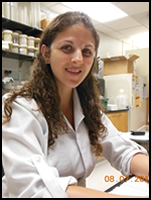 Jamile C. Silveira, MS
Jamile C. Silveira, MS
PhD Student
Institute of Biomedical Sciences, University of São Paulo
Sao Paulo, Brazil
I have studied the effect of iodide excess on thyroid genes since I was in college, and I think it is a very interesting area, and still not totally clarified.
I want to continue to learn more about how the thyroid works. Also, I want present and discuss my work with different people, to collaborate and improve it.
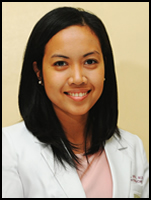 Hannah C. Urbanozo, MD
Hannah C. Urbanozo, MD
Endocrinology Fellow
University of Philippines – Philippines General Hospital
Paranaque, Philippines
I am an Endocrinology fellow in training at the National University Hospital of the Philippines, serving charity in- and out-patients. We handle thyroid emergencies, pregnant patients with thyroid disease, and are seeing a rising trend of thyroid cancer in our clinics.
With health resources concentrated in the cities, a huge chunk of our population in the provinces remains underserved. I plan to practice in the provinces and with other stakeholders, our mother society - the Philippine Society of Endocrinology and Metabolism, and hope to increase disease awareness. ATA membership would be instrumental in keeping me abreast with the latest breakthroughs in thyroid disease.
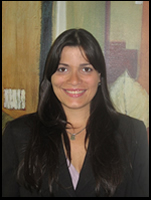 Mónica A. Vega, MD
Mónica A. Vega, MD
Endocrinology Fellow
University of Puerto Rico
San Juan, Puerto Rico
During the past year I have had the opportunity to work as an endocrinology research fellow at the University Hospital of Puerto Rico. I am currently working on a thyroid-specific investigation regarding the quality of life of patients diagnosed with differentiated thyroid cancer in the Puerto Rican population. It has not been an easy task, but I believe that research is an important element for the development of new clinical and scientific advances that could ultimately translate to the well-being of our patients.
By joining the American Thyroid Association, I believe I could submerge myself in a worldwide organization the newest clinical and scientific thyroid related information, in order to treat and cure my patients as an Endocrinologist in the near future.
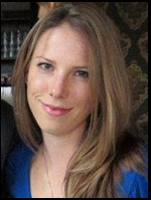 Christina von Roemeling, MS
Christina von Roemeling, MS
Graduate Student
Mayo Clinic Jacksonville, FL
Anaplastic thyroid carcinoma (ATC), while the least common form of all thyroid cancers, is the most deadly. There currently is no cure for this disease, and treatment options are limited and often provide minimal survival benefit. I currently conduct translational cancer research identifying novel molecular targets of therapy for ATC with the goal of establishing new routes of therapeutic intervention for these patients.
Joining the ATA will provide me the opportunity to meet other scientists in order to exchange ideas in common research fields, and stay up-to-date with current clinical and basic thyroid cancer research.
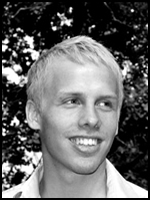 Erik Wennerberg PhD
Erik Wennerberg PhD
Student
Karolinska Institutet
Sweden
I am an immunologist and pre-clinical cancer researcher at Karolinska Institutet, Stockholm. My research has over the past few years focused on anaplastic thyroid cancer and how the immune system can be harnessed to combat this aggressive form of cancer where the need for alternative treatments is urgent.
I believe that the ATA can be an excellent platform for me to meet and discuss my research with other scientists and clinicians that are working with thyroid cancer. This dialog would promote the development of my projects and gives the opportunity to form future collaborations.
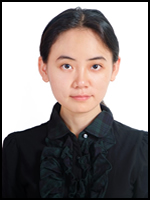 Yu Yao, MD, PhD
Yu Yao, MD, PhD
Resident Sichuan University, West China Hospital
China
I am interested in different thyroid disorders. One of my major foci is thyrotoxic periodic paralysis, which has a predilection for Asian males, and I have started research on its pathogenesis. I am also interested in the antibodies in thyroid disorders.
I am a reader of THYROID, and I will be attending the 83rd Annual Meeting of the American Thyroid Association. I am interested in all the resources offered, including articles, meetings and programs offered by the ATA for professionals.
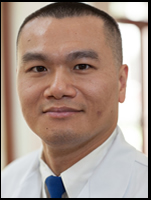 Hanford K. Yau, MD
Hanford K. Yau, MD
Fellow
University of Florida
Gainesville, FL
Thyroidology is a vital part of endocrine practice. With growing incidence of thyroid cancer, and developing treatment strategies beyond surgical and radioactive modalities, it's important to be a part of a professional body that advocates and promotes ethical and evidence based sound practices in clinical and academic practice.
